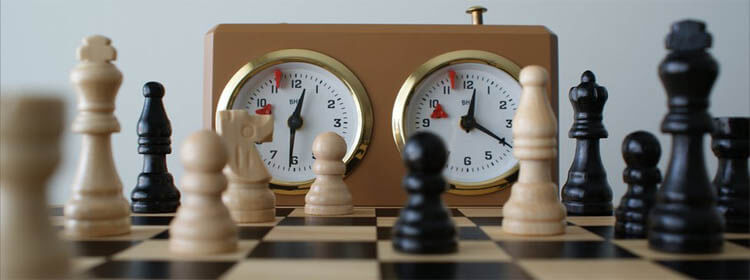"The times they are a-changin'" - Bob Dylan. Yes, Uncle Bob was right in the 1960s, is right now and will be right for ever and ever. In fact, the times are changing every day, every hour, every second. Conversely, chess has been quite stable throughout the times. Probably, it's due to its double art/game character.
Like a good paint that remains forever in the museum wall so it can be admired! - why to evolve if its value was proven surviving oblivion for centuries? Or like any sport with a huge fan base: why to change it if it “works”. Nevertheless, chess is changing too! Back in the 1960s, would Bob Dylan, who is also a chess player, believe that some decades later a widespread device (call it personal computer) using a world web of communication (Internet) would allow any player in any part of the planet to play with a random opponent found elsewhere? We call it online chess play. And would he believe that finding and reproducing any chess game ever played would be possible in just a few seconds? We call it chess database...
Slow times
As recently discussed, we are living in faster times. Data is being created and flowing much faster. An e-mail arrives faster than a letter and, then, we answer it faster too. So, should chess be faster? For instance, some months ago (it look like ages, nowadays...) the top golf player Rory McIlroy has called for a faster version of golf in order to attract young players to the sport. Well, we may argue that golf is also very expensive, contrarily to chess, and that may be a reason for a loss of players but the time argument makes sense and is comparable to chess, as one match of these sports may last 3 to 5 hours. Accordingly, the same speed up process has been proposed to other sports. Simultaneously, the Slow Movement (sic), the effort to slow down the pace of modern human society aiming to improve the quality of life, is in expansion (probably, a slow expansion - but that's inherent to the movement philosophy). An example of this doctrine is the Slow Food movement, created as an alternative to fast food... While some try to speed up and other to slow down, one question must arise in this space: what about chess?
Blitz, Rapid or Classic
In what concerns time, chess has an advantage over other sports: timing can be easily adjusted, contrarily to the 90 minutes soccer, 60 minutes handball and 40 minutes basketball, for example. Actually, chess is of variable duration, like volleyball and tennis, given it might end with checkmate (ironically, almost never!), forfeit (rarely, fortunately), resignation (often), draw by agreement (maybe too often) draw by stalemate (more often than it should be but still very rare), draw by threefold repetition/the fifty-move rule/insufficient material (yes, it happens) and, of course, loss on time. Then, a 5 minutes (per player) blitz game will last no more than 10 minutes. Even the common 20 minutes (per player) rapid chess, lasting 40 minutes or less per match, allows several games per day. These are examples of the so-called fast chess, with a time control under the classical 60 minutes time control. Blitz games, up to ten minutes per player, are quite popular among young players and online chess play. However, for the main FIDE events ”there is a single time control: 90 minutes for the first 40 moves followed by 30 minutes for the rest of the game with an addition of 30 seconds per move starting from move one” (in www.fide.com). This means a chess game may easily last more than 4 hours... Is it too slow?
Faster Times
Four hours may not be that much if one wants to focus and really “think” the game; efficient abstract calculation of dozens of possibilities is not that fast... Nevertheless, it only allows a chess game per day... or two? I believe most chess players prefer one round per day during the main chess tournaments, for several reasons: one have time to carefully prepare each game, to rest and to focus on the day match/match day. I believe organizers prefer two rounds per day due to time constraints and logistics. Who is right? There are no chess tournaments without players nor organizers... Another interesting example when chess felt the rush to be faster: Chess Olympiads. In the 38th Chess Olympiad (Germany, 2008), the number of rounds (using the Swiss System) was reduced from 13 to 11, with accelerated pairings. The last Chess Olympiad, 41st (Norway, 2014), had 11 rounds during 14 days (the first day without competition plus two rest days). Will a future Olympiad last only 7 or 8 days using double rounds (two rounds per day)? Let's wait... Last but not least, chess player are faster to gain the Grandmaster (GM) title. All the three youngest grandmasters were born in the 1990s and gained the GM title before heir 14th birthday: Magnus Carlsen, born 1990, aged 13; Parimarjan Negi, born 1993, aged 13; Sergey Karjakin, born 1990, aged 12. Fast and frightening!?
Are the times changing chess? Is chess faster? Will chess be faster?
- - Paulo de Morrais - -




